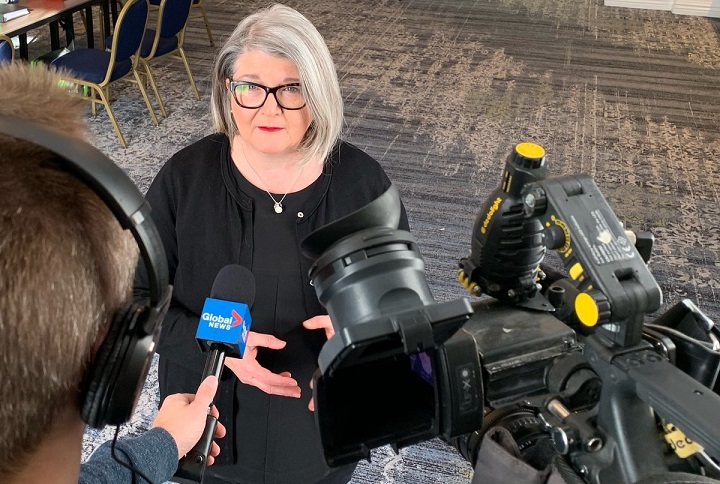Registered nurses in Saskatchewan continue to be concerned over the lack of personal protective equipment (PPE) as the number of COVID-19 cases in the province continues to rise.

Considered the most effective protective wear by the Saskatchewan Union of Nurses, N95 masks are at a premium.
SUN president Tracy Zambory says it’s putting a strain on its workers.
“It’s not like COVID-19 was a surprise. We could have been doing this quite some time ago and unfortunately, it’s poor planning.”
Zambory said other than the lack of PPE, nurses in Saskatchewan are dealing with the situation in a positive manner.
“Registered nurses, we are there for people no matter what. We are very used to working in stressful conditions. We’re used to working with people who have infectious diseases,” Zambory said.
“This is not new to us. We are not nervous or concerned about that part of it.”

Get weekly health news
Some nurses in Alberta have refused to work due to not having proper PPE, but Zambory says it’s not something SUN is looking to follow.
“We’re going to strive to not have that happen. Registered nurses are dedicated to their patients. The last thing we want to do is to halt work,” Zambory said.
“We are going to work with the health authority and ministry of health to make sure that doesn’t happen. At the end of the day, we need to make sure frontline workers aren’t getting sick.”
In regards to N95 masks, Saskatchewan Premier Scott Moe says there are many supply chains trying to meet the demand.
He is hopeful supply shortages won’t last much longer.
“It looks like supply will be ramping up. We are hopeful for that, not only for us here in Saskatchewan, but for all of North America,” Moe said.
Moe said he is grateful to all Saskatchewan businesses and industries who do have N95 masks on hand and have provided them to SHA.
When the COVID-19 pandemic passes, Zambory says SUN plans on sitting with the province’s ministry of health and Saskatchewan Health Authority to talk about how to better plan for future situations like COVID-19.
Questions about COVID-19? Here are some things you need to know:
Health officials caution against all international travel. Returning travellers across Canada are legally obligated to self-isolate for 14 days, beginning March 26, in case they develop symptoms and to prevent spreading the virus to others. In Saskatchewan, international travellers are already required to self-isolate for 14 days upon their return to the province.
Symptoms can include fever, cough and difficulty breathing — very similar to a cold or flu. Some people can develop a more severe illness. People most at risk of this include older adults and people with severe chronic medical conditions like heart, lung or kidney disease. If you develop symptoms, contact public health authorities.
To prevent the virus from spreading, experts recommend frequent handwashing and coughing into your sleeve. They also recommend minimizing contact with others, staying home as much as possible and maintaining a distance of two metres from other people if you go out.












Comments
Want to discuss? Please read our Commenting Policy first.